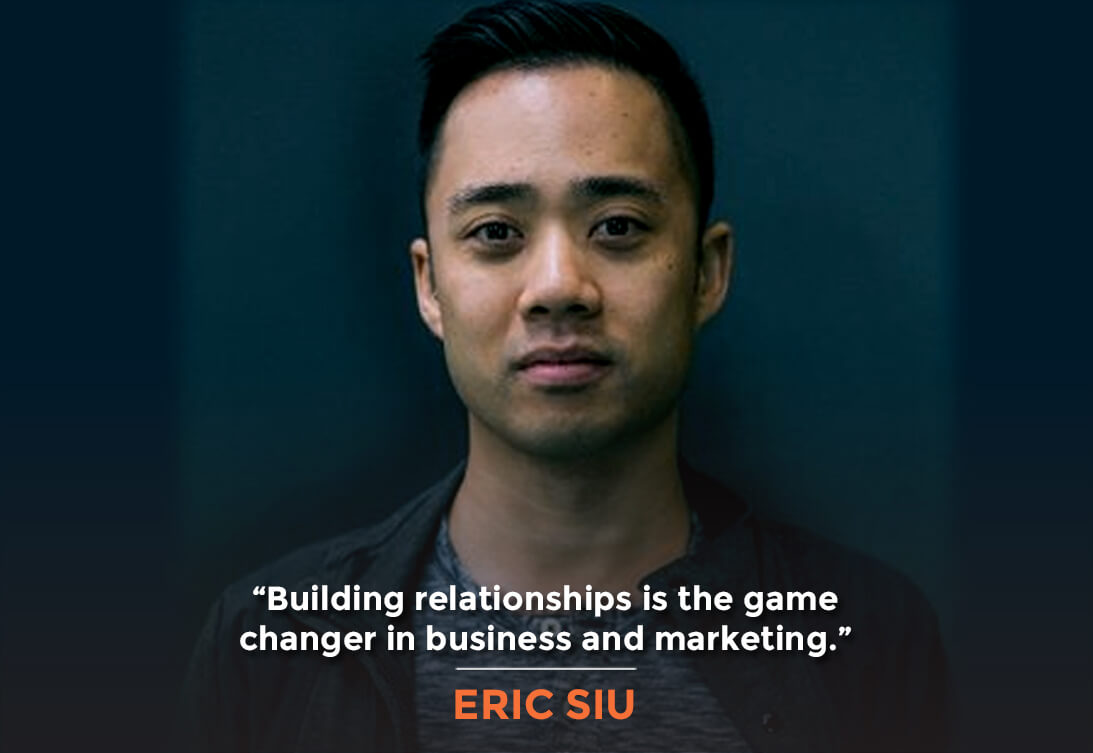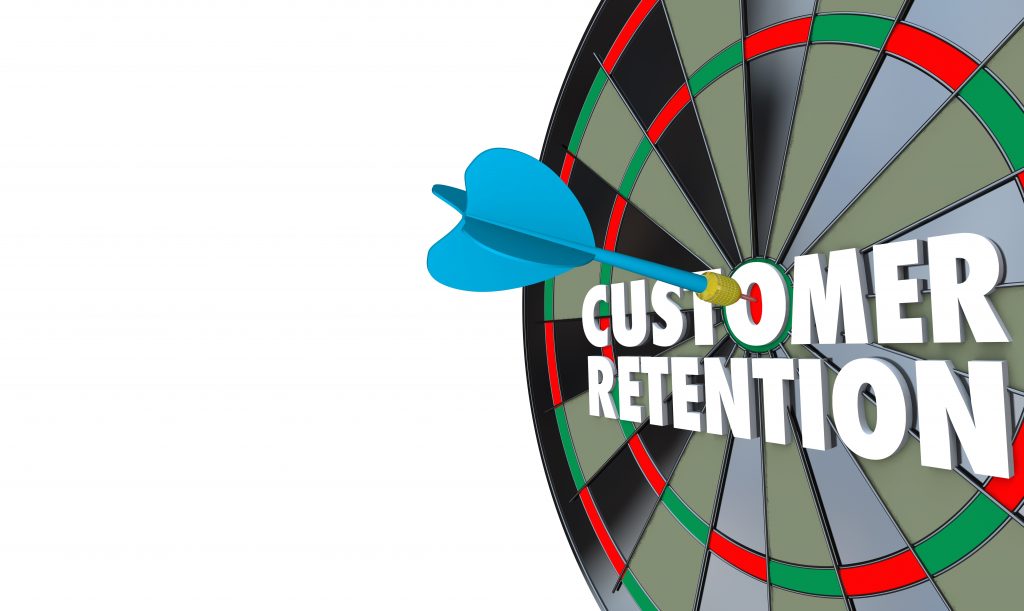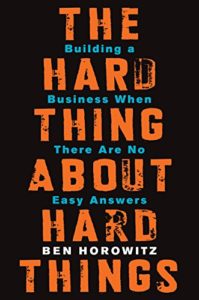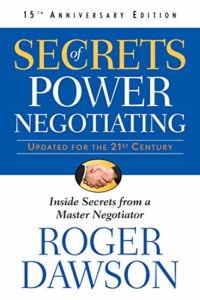Imagine buying a failing company for $2 and not just turning it around in a couple months, but growing it to the point where you have offices in San Francisco, LA and New York and an impressive client list that includes companies like Lyft, Intuit and more. That’s the remarkable story of Single Grain, the agency owned by my guest, Eric Siu. He is an SEO consultant and entrepreneur who has developed growth strategies for dozens of noted brands. He also cohosts the Marketing School podcast with Neil Patel, who has also been on the show twice. Eric is the creator of ClickFlow, a CDN or proxy server for SEO. It’s an unusual idea and similar to GravityStream, an optimization platform that I had developed way back in 2003 and it got sold with my agency Netconcepts in 2010. In this interview, we’ll be talking about the secret behind creating a more powerful connection with your customers, how to harness multichannel marketing and the process behind turning your website into an evergreen traffic machine. Since Eric is a prominent speaker and podcaster, he’ll also be providing some valuable tips on creating a personal brand and building an audience for your podcast.

Transcript
Eric, it’s great to have you on the show.
Thanks for having me, Stephan.
Let’s talk first of all about how you got to twelve million downloads for your podcast, the Marketing School. That is impressive. What’s the secret?
The Marketing School podcast, I’ve been doing that one for about a couple of years with my buddy, Neil Patel. We both love nerding out on marketing. When I think about the success that we’ve had, the easiest way to explain that is that we’ve basically created something that doesn’t follow a format of what other people do. A lot of people will do a lot of interview podcasts. You see a lot of those going on. It’s not to say there’s anything wrong with interview podcasts because I have an interview podcast myself, but it’s having a point of view. You can do an interview podcast, but on my interview podcast I talk to entrepreneurs and marketers and we go deep on marketing. That’s my different point of view and that’s once a week.

For Marketing School, you have two guys that run multiple businesses, they love marketing and then they have different perspectives too. It’s every single day for five to ten minutes. We’ve zigged where other people zagged. That’s led to us approaching 800,000 downloads a month. To date, when we initially connected it was twelve million, but now as I looked at the all-time download count, it’s at fifteen million now. It continued to grow. The reason that I know that it is working is that whenever I walk somewhere, people will say some nice comments about it. It’s been a fun journey.
You’re not doing any paid advertising? No paid media to drive those download numbers?
Zero paid media. Frequency definitely matters a lot. I will also say that Neil and I both push to our email lists and then after that, it took off from there. Occasionally, we’ll do things like Neil added a mobile pop up to his site that will push people to subscribe. We’ll also add at the end of the podcast asking people to rate, review and subscribe. That’s also helped keep us high in the rankings.
You have an agency called Single Grain. I’m curious where the name came from.
There’s a lot of slimy marketing going on; you don't want to be in that bucket. Share on XIt’s an unimpressive story once you hear it. The new story that we have is that a single grain looks like an orange egg. It looks like a phoenix egg and the Phoenix is constantly born, we’re constantly reeducating ourselves. You can say it’s a single grain that is constantly growing. That was the theme that we decided because of the original story, the original Founder of the company, Sujan Patel, which is Neil’s cousin. I took over Single Grain in 2014. When he founded single grain, he had to come up with a name. It was the deadline to tell the business bureau what the name was. He couldn’t think of a name and he was eating a box of cereal and the cereal said single grain. That’s how the name came about.
It reminds me of the story of how I came up with my latest company name. I’m the Founder of Netconcepts and that’s a cool name. My latest company is called Koshkonong and that’s a terrible name. If you don’t love your name, fix it. That’s a little bit of advice for our audience. This name came from my attorney because I was trying to figure out a name for a holding company. It was originally going to be a holding company, but it’s grown to be much more than that. He’s like, “What street do you live on?” I’m like, “Koshkonong Road.” He’s like, “How about Koshkonong, LLC?” I’m like, “Let’s do it.” Several years later, I’m dreading it. That was a bad choice. Anyways, Single Grain is an agency that does digital marketing. What makes you guys special that companies like Uber, Nordstrom, Salesforce and Intuit are working with you guys rather than their agency of record or maybe you are their agency of record?
We’re not anyone’s agency of record. What I would say about us is that when it comes to a performance marketing perspective and you look at the things that we do, not even on the agency side, but the software products that I have or other projects that we work on, we mostly work with a lot of technology companies, especially software. To say that we have our own software company and we work with a ton of software companies like the Salesforces of the world and the Recurlys of the world. We work with Amazon on the software side. That lends a lot of credibility and the fact that we have our podcasts where the American expression is, “We eat our own dog food.” I don’t think it makes any sense, but I’m going to use it. We eat our own dog food and you see us out there. There’s nothing better than to show to people other than when we’re involved in a pitch or a competition to say, “Look at all our stats and look at all the other agencies.” Almost 99% of the time, they can’t even compare to what we’re doing. Looking at the numbers and looking at using competitive analysis tools, there’s just no comparison.
Let’s dig a little deeper into that. What is the software that makes you guys unique?

The software that we have is SEO A/B testing software. If you are a large website, you are Home Depot, for example. You’ve got millions of SKUs and a bunch of pages on your site. You’re getting millions and millions of visits a month to be able to optimize on that without going too much into the product. It could be six to seven to eight-figure difference in your business. Why that matters is because we know exactly how to build SaaS products. We come from a SaaS background. Multiple people in my company have and I’ve also worked on the subscription as well. That experience is worth a lot more than anybody that says, “You should come work with my agency and we’ll charge you way less.” The opportunity cost thereof having to take that risk is some people can stomach it, but a lot of big companies can’t.
This is very much like déjà vu because I founded with Netconcepts also Software as a Service technology within that agency and that was called GravityStream. We did essentially what you’re talking about. We didn’t tout it as an A/B testing solution, but as a reverse proxy that allowed especially retailer to do an end-run around their IT department, which typically was a big bottleneck and maybe it took a couple of years to implement some significant SEO changes. You bypass all that and instantly have through this reverse proxy an optimized website. It took us a little bit of time, maybe a few weeks but it was amazing. We charged on a cost per click basis. Do you do a performance-based pricing model? We charged $0.15 a click and we had clients like Nordstrom and Zappos who were paying us significant sums of money. Some even seven figures a year, just from individual clients. That was the main reason why my agency got acquired was that of this technology platform.
On our side, to answer your question, we have considered that. We’re mostly charging based on traffic. You can in a sense say it is performance-based but in the future, we are planning to do something similar to what you did.
I don’t do that anymore because that technology went with Covario, the acquiring company. Now, it’s a part of Rio SEO. Was that something that Sujan came up with or Neil or was it you? What was the genesis for this particular software?
There’s millions and millions of blog posts being published every single day that it's harder and harder to stand out. Share on XWe had our email list already. I had a hunch that this would be a good idea. We basically ask them what their challenges were to see if we can build software around what solves their problems. What we also did was we created a poll to see a list of ideas, what people would be most interested in and this one seemed to resonate the most. We did a little serving first and then we made a decision based on the data.
How often are you hitting up your email list, your fans, and followers and asking them for feedback on product ideas, on marketing weapons and new channels to pursue all that?
We do it once a year. We have an annual survey. It’s always the same questions and it works out well, “What are your challenges?” because they have new challenges. “What new topics are you interested in?” We added something where we asked the question, “How disappointed would you be if we no longer produce this content?” Let’s use Marketing School as an example. About 76% of people marked it as very disappointed. In the software world, product market fit is a phrase that was coined to show that you’ve reached a good segment of people that cannot live without your product. Usually, if you’re above 40% you’ve got product-market fit, which means you’re probably ready for scale. To have that number answered, that 76% is validating for us. On the other side, I tested this for Single Grain as well. The difference between that was 50%. Single Grain was 26% of people would be disappointed if they no longer got to see the content. Marketing School is 76%. It tells me where to focus my efforts in the near future.

There Are No Easy Answers
Are you also doing Net Promoter Score or other methodologies that help you get a gauge on how well you’re doing and if you need to course correct?
We used to do Net Promoter Score for that survey. Now, it’s to rate the content on a scale of one to five and then we average it out. We do the Net Promoter Score for the software and then for clients. We use a tool called AskNicely for that.
I haven’t heard of that tool. Is that something that was developed by people that you know? How did you end up using that one?
No, I just met the CEO at a software conference.
What conferences do you typically frequent? What are your favorites?
The ones that stick out to me would be TED, the main TED Conference in Vancouver. SUMMIT would be another one that’s in downtown LA. It used to be on a boat in Miami. The one that I went to was a seven-day program called the Singularity University Executive Program. For me just to give a high level, you can see a lot of these are TED and Singularity. It’s future-focused and then the type of people that you’re meeting are focused on things that are going to shape the future of our society. I like being involved with that.
Abundance 360, are you part of that as well since you’re part of Singularity?
It looks if I’m part of the executive program then it looks like they added me to everything else.
Abundance 360 is run by Peter Diamandis. Summit, Singularity University, Abundance 360, TED, what are some of the other masterminds that you’re part of or have been and enjoyed? Genius Network, Strategic Coach? What are your programs?
I’m in Entrepreneurs’ Organization. That’s one. Typically, I don’t use the mastermind word for that. The mastermind I’m in is DigitalMarketer’s War Room and I created my own. We went to Cabo in August 2018 with a good group of guys. We’re doing a St. Martin trip in March 2019. I’ve always found a ton of value from those. Other than that, usually when I travel to a conference, I’ll host dinner too. Even though I’m naturally an introvert, I get a lot of good value from these.
Help someone else first. It always ends up being something much bigger than just a link at the end of the day. Share on XI’m naturally an introvert too. When I’m on stage speaking, I flip into the extrovert mode and then I’m exhausted later. I’m ready to crash after a long day. I’ve had Roland Frasier who runs War Room on this podcast. We did a deep dive into masterminds, conferences and so forth. Since we talked about masterminds and events, let’s take the next logical step and go to favorite books. What are the most life-changing or business-changing books that you’ve read?
I’ve found when I ask this question on the podcast, sometimes I think to myself like, “They’re probably just giving the book that comes to mind first.” I’ll give the ones that stick out. Doing the Growth Everywhere Podcast where I’ve done well-over 300 episodes, the most recommended book is by far The Hard Thing About Hard Things by Ben Horowitz and I agree with that. That’s one. The second one I would say is Vivid Vision. When I was at the TED Conference in 2018, that book is about how you can craft your own vision. There are a bunch of templates in there. After I crafted that vision, it took me about fifteen to twenty hours. I shared it with the entire team. Now, there’s a sense of everyone’s rowing in the same direction much more than they have been before. I found that to be extremely valuable. Those two books are the ones that come to mind first.
I’ll throw in a couple as well. One is From Impossible to Inevitable by Aaron Ross, who has also been on the show. That was powerful in getting my team to be in alignment with me in terms of not renting their jobs but feeling ownership in their jobs, functional ownership as well as financial ownership. Never Split the Difference, which is the best-negotiating book I’ve ever read. It is fantastic. Have you read that book?

I’ve read it. I found this other book called Secrets of Power Negotiating to be, at least for me, much more impactful than Never Split the Difference.
How was it impactful for you? What has it done for you?
Never Split the Difference, I don’t remember anything from it. Secrets of Power Negotiating, at least one takeaway I can get is every time someone asks for a concession, you ask for a concession back. That way, they’ll learn to back off. There are a lot of practical examples in there that I’m like, “I can apply this and use this in real life.” I’m a get-to–the-point person. Never Split the Difference, there’s nothing that was remarkable for me. I’m speaking from personal experience. I’m sure it’s different for everyone.
I’m going to remind you of one point that you may decide to start using. One of the biggest things I got from Never Split the Difference is that if you formulate a question in let’s say an email outreach or a voicemail that you leave, ask a question that evokes a no answer instead of a yes answer. It’s much more powerful. Instead of saying, “Did you get my proposal? Do you have any questions?” Let’s say it’s been two weeks or three weeks and you’re worried that they’re going to go with a different agency. You could say, “Have you given up on SEO? Or have you decided to go in a different direction with your SEO? Or was there something about it that wasn’t a fit?” If they say, “No, it’s all good. We’re still working.” That is going to evoke a better response or at least a response much more than, “Checking in. Is everything okay? Did everything look in order? Do you have any questions?” I don’t know if that’s useful to you, but it’s been super powerful for me. It’s maximized my response rate from prospects.
What was your response rate before and then after?
It’s probably about doubled it, but I have not done a statistical analysis on it. I know it was significantly more and roughly double.
What I would say from my side is I unconsciously have implemented this. Maybe it’s something I read from the book and I forgot it, but it sounds about right. I can see how it would double your response rate.
Maybe it’s something you naturally are already doing. Let’s talk about online courses and information products and how those fit into your business because you’ve got a great pillar there with agency model and done-for-you services. You’ve got another great pillar with Software as a Service that can make money while you sleep. Another pillar that makes a lot of sense for a lot of businesses is to package your IP in the form of online courses or membership sites or some other type of information product. What have you done there? What’s worked and what hasn’t?
Building relationships can be a game changer. Share on XWe have one training designed to help agency owners grow. People might ask, “Isn’t that conflict of interest?” and to us, it’s not because we might be interested in acquiring more agencies in the future. Also at the same time having that agency program, we’re able to get partners for our software because a lot of agencies they have the clientele that we’re looking for the software. We’re talking mid-market to enterprise companies. Also, with Marketing School because we’re cranking out so much content. We’re coming up on 900 episodes. It’s every single day. That’s not even including the videos that I pump out on my YouTube channel, Neil pumps out videos on his YouTube channel, the speaking that we both do separately. We do a ton of written content too. We are talking about packaging it all up. We’re going to probably roll out individual training where people will pay monthly for that. We also have the a la carte one-offers for courses like SEO for example.
The Evergreen Traffic Machine, is that a course or is it a different program? What’s the structure of that?
The first one was Agency Accelerator. The Evergreen Traffic Machine, that’s basically a playbook. I don’t like calling it a course because it tends to put it in the same bucket as a lot of the slimy marketing going on and I don’t like being in that bucket. What’s included in there is we talk about how we have grown one of our properties from zero to two million visits a month. Some of our clients have gone up to 45 million visits a month. When I took over Single Grain, we were getting about 4,000 visits a month and now we’re about 200,000. You’ve got the two podcasts that we do on the higher end 800,000. Clearly, we know a thing or two about this traffic game and how to make it convert. That’s something that I get asked about a lot. We decided to put that together and that’s basically an entire training that’s a couple of hours. It also includes how we do content marketing, how we do SEO for ourselves. Everyone can basically duplicate that playbook. A lot of these people that go into that funnel are looking for agency services. We have a one-off strategy or it can go into services. Sometimes it can go as high as one-on-one time with me where sometimes they even fly me in. That’s rare because I try to be cognizant of my time.
It’s not scalable, not like the other stuff that you’re doing. Let’s differentiate content marketing from SEO because some people think of content marketing as the new link building. Content marketing is so much more than the SEO benefits that you get from it, but it’s not the only part of SEO. It’s certainly one of the least understood parts of SEO because you can’t control it. You can only influence it and hope that people link to you and buzz about you and so forth. Let’s talk a bit about the interplay between content marketing and SEO. What are your thoughts?

We covered this on an episode on Marketing School. Neil brought up a point that as you’re asking the question, it stuck out to me. A lot of people think content marketing as it relates to SEO, it’s just blogging. The reality is content marketing, especially in the world we’re going into, we’re looking at people doing things from an omnichannel approach. If you look at the Gary Vaynerchuk of the world or even if you look at another company like Drift. They handle a lot of different channels well. A guy that used to work for me now works for Gary Vee’s copywriting team. It will go from a video, it will go into a blog post and that blog post might convert into social media images or Instagram. You’re basically taking one piece and you’re going across the board now. To me, content marketing now almost has to be omnichannel, which you’re seeing a lot of these businesses doing. Drift have not one but they have four or five podcasts. They do content marketing and have their own events. It’s like, “How do you go about maximizing everything you can do?” To me, hosting an event is also “content marketing.” That’s my first answer around content marketing and what I think it is.
As content marketing relates to SEO, when it comes to SEO now, there are millions and millions of blog posts being published every single day. It’s harder and harder to stand out. What I would recommend if you’re starting out, if you’re hell-bent on blogging and you’re hell-bent on generating links, it’s how do you go about building a relationship. How do you barter with people? How do you give stuff to people? If you’re looking to get connected with somebody and you know that they’re interested in the New England Patriots, for example. You might hook them up with season tickets or whatever.
It’s more important to understand who your target is and understand how you can help them first and then also start to build a relationship that way. I found that all about relationships where I helped someone else first, it always ends up being something much bigger than a link at the end of the day. The link will come eventually but there’s a lot more. It can even be as simple as free software or speaking at someone’s conference. It can even lead to services as well. Thinking beyond getting a link for SEO purposes or increasing organic traffic is going to help you a lot more in the long-term. Thinking more about relationships can be a game changer.
As long as you provided value, people will come up to you. Share on XWhat’s an example where you’ve done this with the software side of your business? Trying to get buzz and mentions and social cred for the Software as a Service at the A/B testing platform.
Here’s an example. The software is new. What we do is simple. We ask for feedback. This is a question that works well and then we find a bunch of our target prospects. People that are the SEO managers or directors at large companies and we say, “Can you give us some feedback?” Basically, they’ll respond positively or negatively. It will be a short email, “Can you give us some feedback on this SEO software? We’re happy to have you take a spin with it.” In some cases, we give it away for completely free. Knowing the benefit of working with some of these “SEO influencers” they are going to speak about us onstage. They are going to leverage the tool. They’re going to be parading it around. We’re happy to do that. That’s one example of taking a product that you have and then using it almost like a Trojan horse to get a relationship started.
Have you ever thought about writing an SEO book?
No. You have an SEO book out there, it’s a great looking book. There are a ton of great SEO books out there. I have finished my book. That’s coming out soon. It’s getting away from being pigeonholed around marketing.
Tell us a bit about the book.

The book is around the concept of leveling up and playing the game of life. I used to play a lot of games like Esports before Esports became a thing. The way I see everything, I wake up every day and I’m grateful, happy and also intense at the same time. Being able to play the game of business, being able to do whatever I want and go in whatever direction- I want that. I feel like in poker, they call it free rolling where you basically can’t lose the hand. I don’t feel I can lose the hand unless I get incapacitated. I feel I can just keep building. I feel all the skills that I’ve gained from gaming can translate it to the game of business or even winning at the game of life. Being able to pass that message onto a lot of gamers around the world, we’re talking over 1.7 billion or even two billion gamers, to say, “If I can do it, you can do it too.” Hopefully, some people can resonate with it.
I’m looking forward to that coming out. That reminds me of another one of my favorite books, which is called The Great Game of Business. Have you read that one by Jack Stack?
He was playing blackjack next to me at one of the EO events a couple of years back. I was star struck. It’s a great book.
It is. The whole process or methodology around open-book management can transform a business. Let’s talk about how you got into speaking and how you leverage speaking in this whole machine that you’ve created. I’ve been speaking for many years. It’s crazy how long I’ve been doing it for. How long have you been speaking? Where did you get your start? Tell us about the journey.
You have to have a point of view and be very protective about your time because you don't want to be trading your time for dollars. Share on XCongratulations to you for doing it for so long and holding the fort consistently. For me, I started when I was 25 or 26. It’s been a few years. For me, it was doing these events for free initially and it was always part of General Assembly or whatever. I got to cut my teeth that way. The crowds would usually be 50 to 100 people. I was nervous in the beginning but what I found at the end was that as long as I provided value, people will come up to me at the end and talk and ask me questions. One thing led to another and I continued to do the free events. What happens is you start to get good after a while and people are in the audience that are part of other organizations that have conferences. After that, they’re going to start to reach out to you. What happens is they start to ask you, “What are your requirements?” I’m like, “What do you mean?” I’m speaking for free all the time. It’s like, “What are your requirements like accommodations, fees, and all that stuff?”
Basically, it’s the same concept as a book. You start small first, you’re a newbie and then you start to level up. People start to ask you different questions and your fee starts to go higher and higher too. If we use Neil as an example, he probably charges upwards of $30,000 to be on the stage. You have ex-presidents charging a couple hundred grand to be onstage. For me, if I were to summarize this is to find your niche, find your target audience and find events where you can speak for free initially. Cut your teeth, start to get better, people are going to naturally start to reach out to you sooner or later. What you can also do is start to look for industry events where there’s always a call for speakers and then you can reach out to them directly. I found that one of the CEOs I used to work for, he’s been on the speaking circuit a lot more aggressively in the last couple of years. It’s because he started to reach out and take things into his own control to speak at some fairly large conferences.
What’s your speaking fee? If Neil’s is about $30,000, what’s yours?
Mine go up to $10,000 or $15,000.

I’m careful about taking on paid speaking gigs because I don’t get to soft sell from stage. The ones where I’m offered a speaking fee, most of the time I’m not interested because it’s not a fit. If I talk to an association of appliance repair professionals, I’m just trading hours for dollars. I want to build the next money machine as I did with GravityStream. Doing professional speaking doesn’t fit with that. Not to say that I’m willing to do a good strategic fit speaking gig, but it needs to be a good strategic fit.
You hit the nail on the head. Let’s put a dollar on it. Let’s say if I don’t think I can get hypothetically $1 million in business value for being at this event. If I don’t think my audience is there, if I don’t think it resonates like speaking in front of a bunch of real estate agents, then I won’t do it. You have to have a point of view and be protective of your time. You don’t want to be trading your time for dollars.
That reminds me of a funny story when you said if the speaking gig isn’t going to generate $1 million in business value, it’s probably not worth it. My first gig wasn’t even a speaking gig. It was a volunteering opportunity where I was a mic runner. This was back in 1995. This is my first event. It was how to market on the internet. It was my first internet marketing event. I went to a couple of other different conferences. Imagine I’m the mic runner running around during Q&A and I start to upstage some of the panelists, including people like GM O’Connell who is the Founder of Modem Media. I was a young 23-year-old, 24-year-old. I was cheeky and naïve. I thought, “Why not?” I got $1 million in business value from doing that, but I also got de-invited from attending and volunteering at the second day of the event. It was totally worth it. I had a big stack of business cards like, “You know more than the speakers on stage. You’re incredible.” I had a big stack of business cards. Two of them converted into each of them $500,000 in customer lifetime value for my agency that I didn’t even have to get funding. I didn’t have to get Angel funding. I didn’t have to get business loans or any credit or anything because I did that cheeky thing. What do you do on stage that helps you close the room or get a lot of opt-ins? Are you using a text shortcode like Leaddigits, TPNI Engage, PlusThis or something like that?
We used to do a Leaddigits, that’s where you enter in a code. Text 1234 to Eric and then you’ll get the slides or whatever. What I started doing on stage was LinkedIn has this feature and it’s the Find Nearby. Everyone can activate that and you can add a bunch of people in the room at the same time. I spoke at this conference in New York and it’s fairly expensive to attend. It was a couple thousand bucks or whatever. People were coming from some pretty big companies in the audience. I said, “Let’s all be friends on stage,” and I showed them how to activate it. Literally, you open up your LinkedIn app. You go to the friend section and you click Find Nearby. Everyone starts popping up at the same time and everyone hits the plus button rapidly. Lo and behold, I have a couple hundred people that are my new friends on LinkedIn. What I do after that is I have my team publishing to my personal LinkedIn every single day, all the video content we’re pumping out every single day. We’re doing more engaging things there and LinkedIn Organic has been great. Continuing to build goodwill in addition to what I’m doing on the stage.

Neil Patel has been a huge influence and value driver for your career and your business trajectory. How did you guys meet? How did you end up deciding to do business together?
I had him on the podcast a couple of years ago on Growth Everywhere. I said, “Why did you even bother helping me in the beginning?” In the beginning, I was learning digital marketing. I was 24 or 23. I’d email him and this guy responded. I’m like, “I’m going to take advantage of this.” I kept emailing him and finally, he was like, “Can we get on the phone?” Usually, you would start ignoring me but he didn’t. One thing led to another, we met at Taco Bell. What he said is he saw a lot of potentials and he saw the persistence to continue to learn. Over the years, he always said that I’ve always had a lot of value, a lot of dollars to his pocket. I got him another speaking gig. We’re both going to be speaking at a conference. The Marketing School podcast started by accident because I was telling him how the Growth Everywhere podcast has benefited me tremendously and he misinterpreted that. As we were walking in LA, he said, “Let’s do it. Let’s start a podcast.” I said, “That’s not really what I said but sure, let’s do it.” That’s how it happened. It’s always been a back and forth. We always help each other out. There’s no ulterior motive. It’s nice to have a guy that I can trust and it goes both ways.
I’ve known Neil for a long time. It’s been over a decade now. Where do we send our audience so that they can work with your agency, check out your Software as a Service, get your Playbook, the Evergreen Traffic Machine, and all that?
You can go to SingleGrain.com/apply. If you are interested in potentially talking to us about building that Evergreen Traffic Machine like the same thing as zero to two million visits a month, 4,000 to 200,000 visits a month. You can definitely talk to the team about that. You can also follow me directly on Instagram, @EricOSiu, the same thing on Twitter. That’s about it. The software is called ClickFlow.
Thank you, Eric. Thank you to our audience. We’ll catch you on the next episode.
Important Links:
- Single Grain
- Marketing School podcast
- @EricOSiu – Instagram
- Twitter – Eric Siu
- Neil Patel – Previous episode
- ClickFlow
- AskNicely
- TED Conference in Vancouver
- SUMMIT
- Singularity University Executive Program
- Abundance 360
- Entrepreneurs’ Organization
- War Room
- Roland Frasier – Previous episode
- Growth Everywhere Podcast
- The Hard Thing About Hard Things
- Vivid Vision
- From Impossible to Inevitable
- Aaron Ross – Previous episode
- Never Split the Difference
- Evergreen Traffic Machine
- The Great Game of Business
- Leaddigits
- TPNI Engage
- PlusThis
- Neil Patel on Growth Everywhere
- SingleGrain.com/apply
- Lyft
- Intuit
- Netconcepts
- Net Promoter Score
- Salesforces
- Recurly
- Amazon
- Agency Accelerator
- Drift
- Uber
- Nordstrom
- Zappos
- YouTube – Eric Siu
- YouTube – Neil Patel
Your Checklist of Actions to Take
☑ Strive to come up with a business name that is appealing and captures the essence of my business.
☑ Ask for feedback from my audience and utilize it to focus on areas where I need to improve. Eric recommends Net Promoter Score and AskNicely.
☑ Attend masterminds and events where I can learn new things and collaborate with like-minded people. Examples are TED Conference, SUMMIT, Singularity University Executive Program, Entrepreneurs’ Organization, War Room.
☑ Grab a copy of these game-changing and highly impactful books recommended by Eric and Stephan; The Hard Thing About Hard Things, Vivid Vision, From Impossible to Inevitable, Secrets of Power Negotiating, and Never Split the Difference.
☑ Formulate a question that prompts a no answer instead of a yes when reaching out to prospects and clients to maximize response rate. This is a technique that Stephan learned from the book Never Split the Difference.
☑ Find my target audience, understand how I can provide value to them and continue on building and strengthening that relationship.
☑ Have a strategic approach when testing the market especially in the early stages of software development. Generate enough buzz by asking for feedback from influencers.
☑ Be open to speaking at events where I’ll have an opportunity to widen my reach but ensure that it’s a good fit for my business goals.
☑ Make sure to listen to the Marketing School podcast and get unconventional marketing wisdom from Eric and Neil.
☑ Visit SingleGrain.com/apply and find valuable information on how I can uplevel my digital marketing.
About Eric Siu

Single Grain CEO | Cohost of Marketing School podcast | Host of Growth Everywhere podcast
Eric Siu’s content marketing and SEO strategies have transformed Single Grain from a failing company to a successful digital marketing agency by attracting clients like Uber, Nordstrom, Salesforce, and Intuit.
He is an industry thought leader, co-hosting the Marketing School podcast (12M downloads and counting!) and Growth Everywhere, where he gets successful entrepreneurs to share their growth secrets.







Leave a Reply